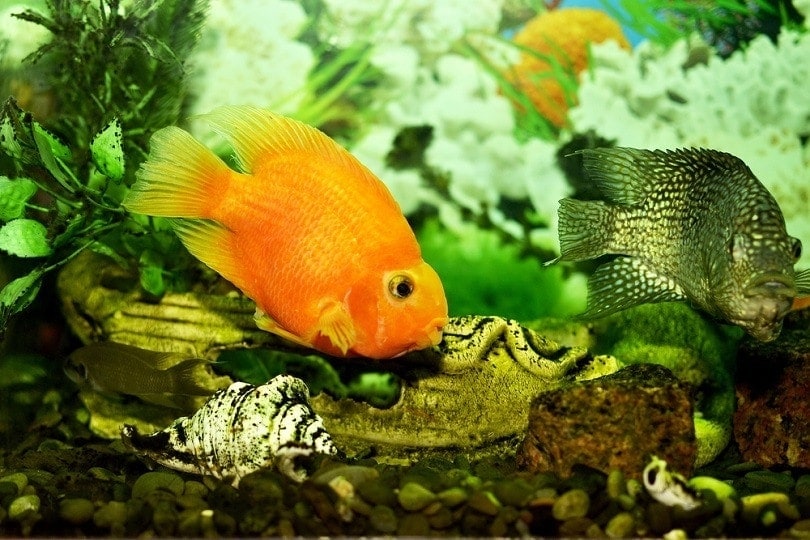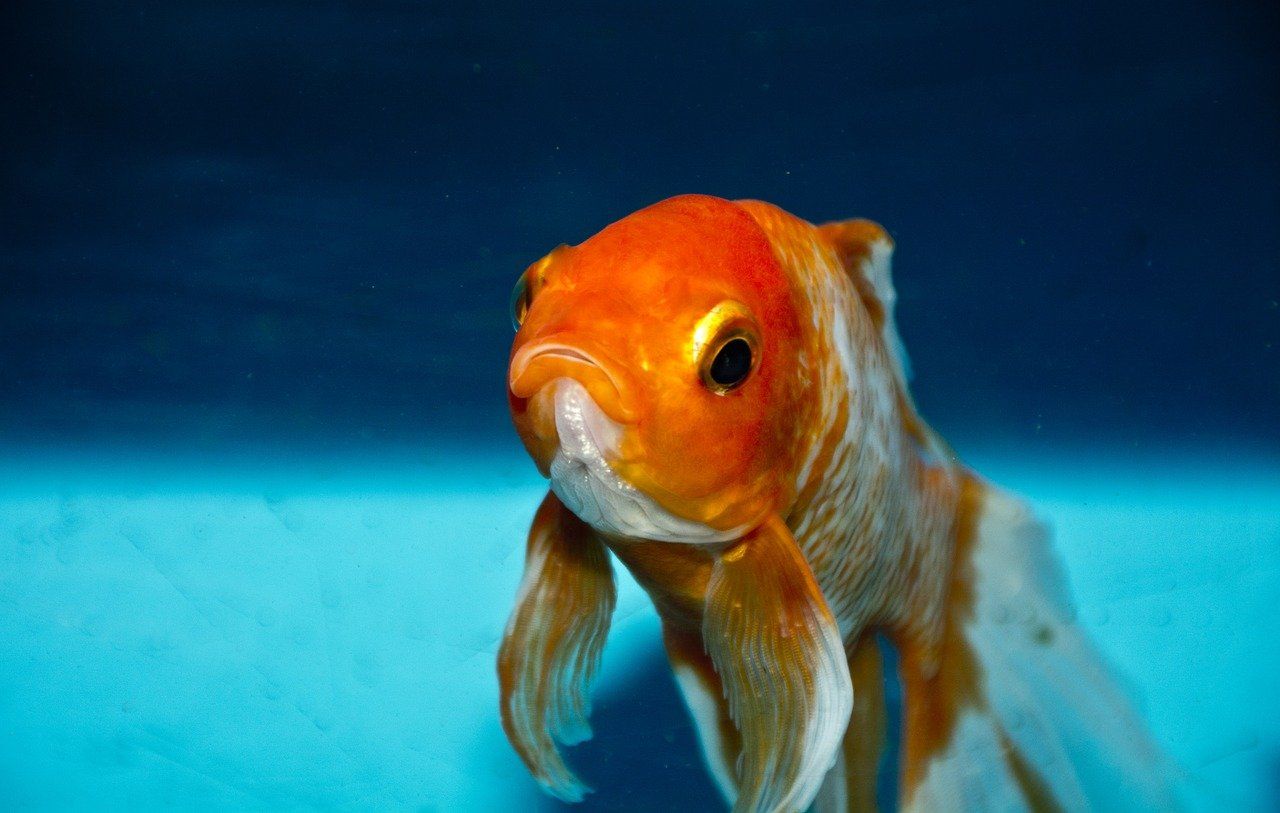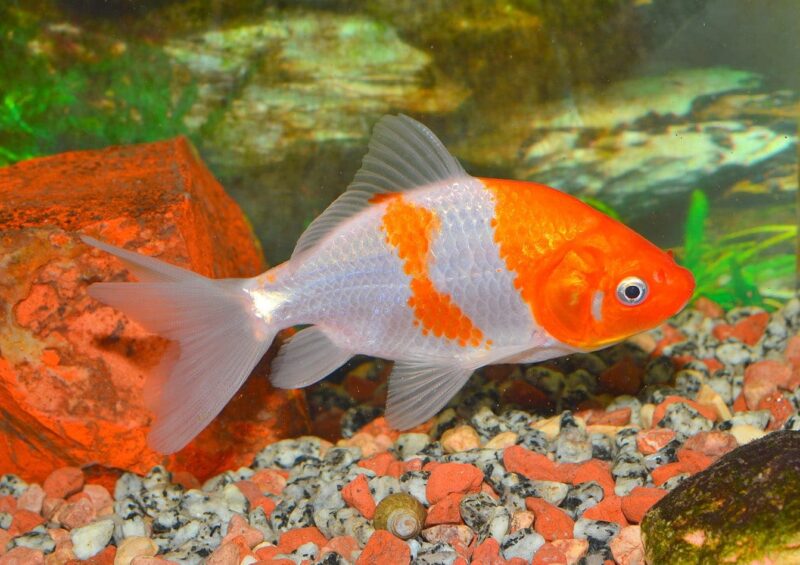Why Is My Goldfish Not Eating? 8 Vet-Reviewed Reasons
Updated on
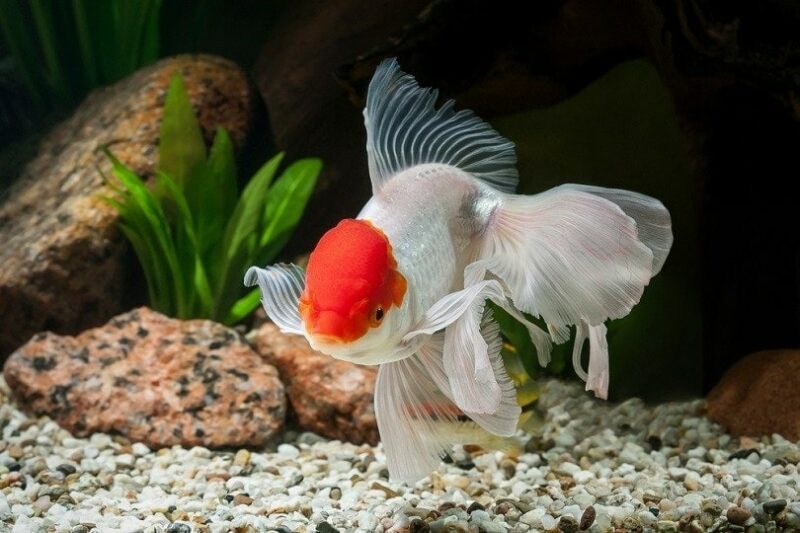
Goldfish are generally lively fish that enjoy eating and foraging for food. So, when your goldfish starts refusing food, it can be a cause for concern. Several reasons can cause your goldfish to lose their appetite. This can range from something simple like unappealing foods to something more serious like disease or poor water quality.
Let’s take a look below at the main reasons for your goldfish’s lack of appetite.
The 8 Reasons Why Your Goldfish is Not Eating
1. New Tank Syndrome
When you have recently set up a new tank and started adding your goldfish, the water quality likely won’t be quite right yet. The ammonia, nitrite, and nitrate levels in the tank will be unbalanced, and your goldfish may begin experiencing ammonia poisoning. This is often referred to as “new tank syndrome”, and it happens quite often in new tank setups.
It can take up to 3 months for an aquarium to complete the nitrogen cycle, which allows an establishment of beneficial bacteria to form in the aquarium and filter. The nitrogen cycle will help convert your goldfish’s waste (poop) into a less toxic form known as nitrates. One of the first signs that your goldfish may be refusing food due to new tank syndrome is if the water has a milky or cloudy appearance.
Unfortunately, new tank syndrome can be fatal for goldfish if changes aren’t made in time. If you notice your goldfish seemingly gasping for air at the water surface all the time and seeming distressed (they may even attempt to jump out of the water), you should immediately perform a large water change (around 50% or so). Also consider purchasing some products to help expedite the tank cycling process alongside water test kits (particularly for ammonia and nitrite).
These water changes should be repeated if your fish seem to be struggling again; depending on the tank’s size, beneficial bacteria amount, and the bioload of the tank, these changes might have to be done on a frequent interval (multiple times a day). A rapid buildup of ammonia can lead to fish losses overnight. Goldfish are very poor candidates for a new tank because their bioload is very high. They should only be placed in a cycled tank (you can cycle a tank without any fish) to avoid New Tank Syndrome.
2. Incompatible Tank Mates
Goldfish are very specific about the tank mates they are kept with. They generally prefer to be kept with their species and not with other fish. This means that you shouldn’t be housing goldfish with other fish like bettas, plecos, cichlids, gourami, angel, or any other aggressive and tropical fish.
Instead, it is best to house fancy goldfish with other fancies, and single-tailed goldfish with either fast-moving or single-tailed goldfish.
When kept with the wrong tank mates, goldfish may have to compete with them for food. Fancy goldfish are slow swimmers and generally don’t fare well in these competitions. These tank mates can also cause your goldfish significant stress, which can make them too scared to eat. You might notice a similar situation happening when fancy goldfish are housed with single-tailed goldfish. The single-tailed goldfish varieties are much better swimmers than some fancy goldfish. When the single-tailed goldfish are getting to the food first, the fancy goldfish won’t have any food left to eat.
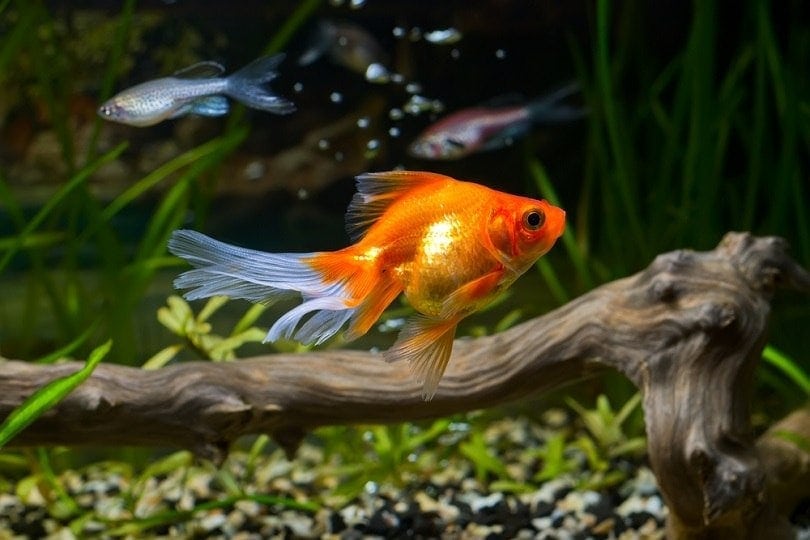
3. Poor Water Quality
The most common reason for a goldfish to refuse food is poor water quality. This could be anything from water low in oxygen, high in ammonia, or untreated from a tap, to containing pollutants. Goldfish require good water quality to thrive and stay healthy, and without it, they will be too stressed or unwell to do basic things like eat and find food.
Ammonia poisoning can occur when the ammonia levels in the tank exceed 0.1 parts per million (ppm). In an established goldfish tank, this should rarely happen. However, things like overfeeding, overcrowding, and a crash cycle can cause a spike in ammonia levels. Fish in general are much more sensitive to the ammonia levels in the water than the nitrate levels. To test whether ammonia is the reason for your goldfish’s lack of appetite and water quality problems, you will need to use a liquid testing kit.
4. Improper Living Conditions
Goldfish are considered large-sized aquarium fish that can reach an adult size of 8 to 12 inches. They also have a higher bioload than most aquarium fish because of their waste production and size. Due to this, goldfish must be only kept in appropriately sized tanks. Small aquaria such as bowls, vases, and tanks under 20 gallons are not big enough to house any species of goldfish.1
Instead, your goldfish should be kept in either a large tank or pond that has a good filtration system. In small aquaria such as bowls, the waste from your goldfish builds up quickly and no amount of water changes will be able to maintain a goldfish in a bowl. The stress and poor water quality from small aquaria can cause your goldfish to refuse food.

5. Overfeeding
Although goldfish are very fond of food and don’t seem to know when to stop eating, it is possible to overfeed goldfish. Overfeeding not only negatively affects the water quality, but your goldfish’s digestive system too. Adding too much food into the aquarium that your goldfish can’t finish within 5 minutes regardless of its quality can cause water quality issues. This is because the leftover food starts to foul and raise the ammonia and nitrite levels.
Your goldfish may also continue to eat the food, causing their stomach to fill significantly. In the case of heavily modified fancy goldfish, this swelling can put pressure on their swim bladder organ and potentially cause issues with their buoyancy.
So, your goldfish might be uncomfortable after overeating and leave the rest of the food to foul up the water. Fancy goldfish with swim bladder problems may also refuse food and struggle to swim normally.
6. Disease, Parasites, or Infection
Regardless of their breed or quality, goldfish can develop a disease, or infection, or catch a parasite. As this disease or infection progresses, your goldfish may feel too unwell to eat. Your goldfish will also become too stressed and weak in the severe stages, and prompt treatment is important. Goldfish are especially susceptible to ich (white spot), swim bladder problems, and both internal and external parasites.
You will need to look for the signs of the specific diseases to determine what could be affecting your goldfish. Fortunately, many of these problems are easy to spot and there are several distinctive signs your goldfish may show. If you are unable to determine what is making your goldfish sick, you should consult with an aquatic veterinarian.
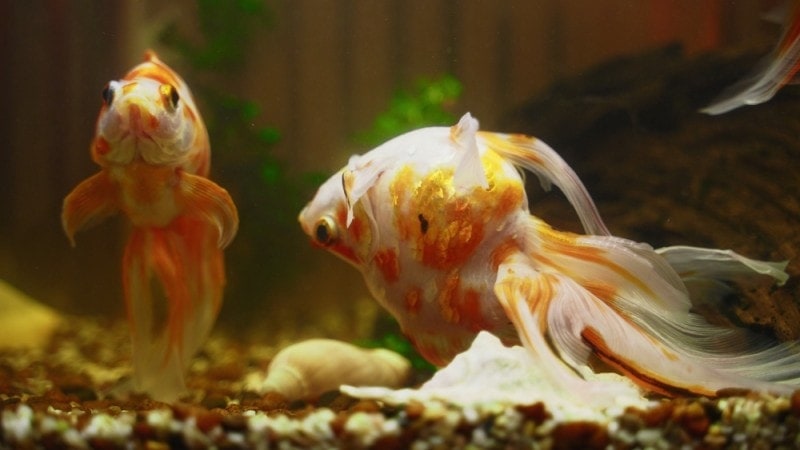
7. Stress
When a goldfish is stressed, it may refuse food and spend more time hiding. This can be caused by several things since a fish’s stress isn’t the same as a human’s. Goldfish can get stressed from water quality issues, improper living conditions, disease, and incompatible tank mates. One of the first signs that your goldfish is stressed and unhappy with their environment is a lack of appetite.
8. Water Temperature
Lastly, low water temperature could be the cause of your goldfish’s poor appetite. This isn’t just a chilly morning or cold room temperature, but rather outdoor winter conditions. This means that outdoor pond goldfish are mainly going to be affected by this, and not indoor goldfish. In cases where the pond temperature has dropped below freezing conditions or frozen over, you may notice that the goldfish start refusing food. Please note that goldfish will naturally hibernate at this point, but if a pond isn’t deep enough and freezes all the way to its base, your fish will perish. Healthy goldfish can hibernate in cold waters, but they don’t survive being completely frozen through.
As the water gets colder than their ideal water temperatures, usually below 52 °F (11 °C), you may notice that your goldfish start to slow down and don’t eat as much. This is because colder temperatures will slow your goldfish’s metabolism—their ability to process and convert their food into energy. If your goldfish are of the fancy variety, it’s best to bring them indoors at this point; their tolerance for hibernation isn’t as good as their common counterparts or koi fish.
So, low water temperatures can cause your goldfish to slow down significantly and lose their appetite completely. The slower metabolism in colder water means the need for food is reduced. Their appetite should return if you warm up the water (if indoors) or when spring arrives (for outdoor ponds).
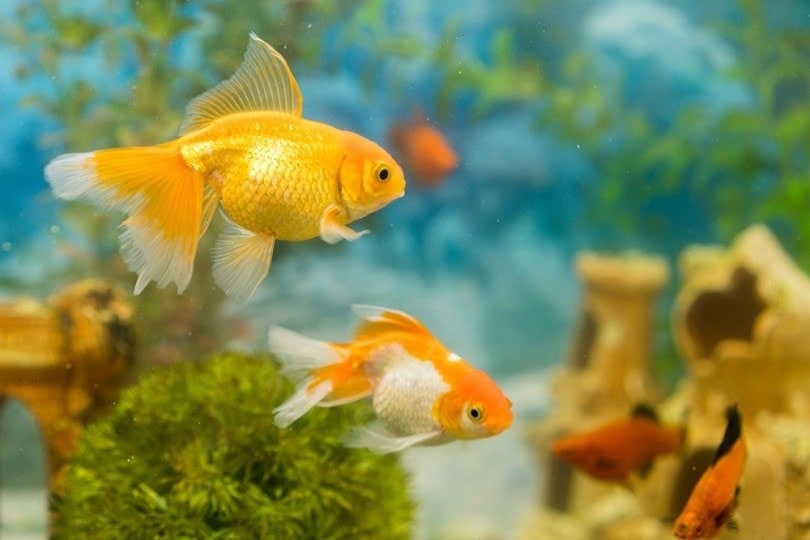
Conclusion
With proper care and living conditions, most goldfish will maintain a healthy appetite. There’s no doubt that goldfish really enjoy feeding time and should not be refusing food. If you do notice that your goldfish aren’t eating and enjoying their food like they used to, determining the root cause, and finding a solution to the issue can help get their appetite back.
Featured Image Credit: dien, Shutterstock


